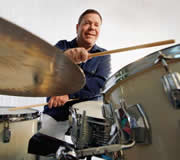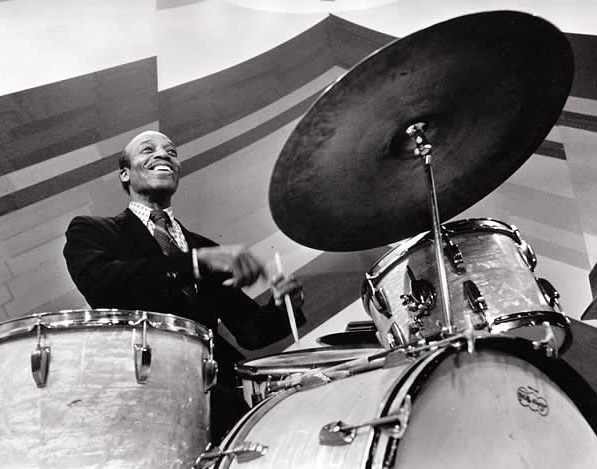Jerry Blavat: The Geator Heats up the Book World
Monday, May 7th, 2012A “Jerry Blavat,” a.k.a. the “Geator with the Heater,” could not be invented today. Or any day, for that matter. In his impressive autobiography, as told to Steve Oskie, “You Only Rock Once,” the legendary Philadelphia broadcaster maintains that “the street” was his “classroom.”
What a street–and what a classroom–it was, as the Geator wisely and instinctively utilized those street smarts to fashion a tremendously successful career as entertainer, radio and television host, music visionary, music industry executive, promoter, talent booker, night club owner, deal maker, hit maker, almost-movie star, friend to celebrities, the rich, the powerful and the famous, from Sammy Davis and Frank Sinatra to Walter Annenberg and Sidney Kimmel.
Though an astounding six decades as an entertainment icon–beginning in the 1950s when he danced on television’s American Bandstand–he never lost his feel for his beloved streets of Philadelphia, and the street kids he called the “yon teens.” Today, those fans are the “beyond teens,” and they still love him and everything he does, whether hosting oldies rock shows at the Kimmel Center or doing fund-raising appeals for Public Broadcasting.
This charismatic, human fireball, seemingly had “it,” whatever “it” was, before he even hit 20. The record industry used Jerry Blavat as its ears in the early days and it became common knowledge that he could pick a hit. As head of the committee that picked the recordings to be played on Bandstand, the Geater was a stickler for ensuring that it was the “original” artists that got played, i.e., Little Richard’s version of “Tutti Frutti” rather than Pat Boone’s sanitized cover of it.
Though all of his years, he would never, ever sacrifice the integrity of the music or his love for it. As a consequence, the color-blind Blavat has kept dozens of artists from the golden days working, and he always tried to make sure they were presented properly. Despite lucrative offers, he would never change his innovative and electric, rapid-fire method of on-air delivery. Indeed, it could be argued that what Blavat did over the decades on WCAM and WHAT radio, to name two, foreshadowed rap as a valid musical form.
It wasn’t all “discophonic” for Jerry, and his unflagging loyalty to his friends–including American Bandstand’s first host, the tragic Bob Horn; and reputed Philadelphia crime boss Angelo Bruno—hurt his career and virtually stopped it in its tracks for a while. Because of his friendship with the Bruno family, law enforcement officials showed the Geator no mercy, and investigated—read, hounded him—for years. Ultimately, he came up clean, and they couldn’t even get him for spitting on the sidewalk.
“You Only Rock Once” is fascinating and honest encyclopedia of the world of entertainment and music in Philadelphia and beyond. My hat is off to the Geator for recognizing the likes of Allen Sussell, Bernie Lowe, Kal Mann, Dave Apple, Artie Singer, Harry Chipitz, Sid Mark and many other figures who contributed so much to the evolution of the entertainment industry.
Blavat has good words for almost everyone—only Mike Douglas and Hy Lit are deservedly not cast in the brightest of lights—but one wishes he would have said more about friends like Sinatra and especially, his close association with Sammy Davis, Jr. I don’t doubt that, in the case of Davis, Blavat continues to adhere to the code of privacy. In a tabloid world where everyone is willing to yak it up for a few bucks, Jerry Blavat proves to be the pleasant exception.
One wouldn’t think Jerry Blavat to be a jazz maven, but it’s important to note that, believe it or not, he discovered jazz guitar icon Pat Martino; gave Wes Montgomery his first shot on national television via the Geator’s “Jerry’s Place” television program; and helped the sagging career egendary saxophonist Charlie Ventura, when Chas returned to Philadelphia after he was forced to leave Las Vegas under veiled circumstances.
I met Ventura during his stint co-hosting “Jerry’s Place” and ultimately formed a musical and personal association with Charlie Ventura, my musical idol, which lasted until Chas’ death in 1992.
If “You Only Rock Once” is ever made into a major motion picture, as it should be, there is only one man who could play the title character: Jerry Blavat. After all, while Bruce Springsteen may be “The Boss,” the Geator with the Heater is the Big Boss. With, naturally, the hot sauce.






